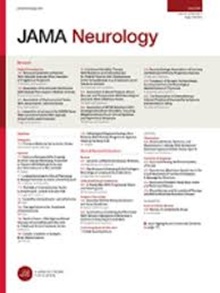Revised Diagnostic Criteria for Vascular Cognitive Impairment and Dementia-The VasCog-2-WSO Criteria.
IF 21.3
1区 医学
Q1 CLINICAL NEUROLOGY
引用次数: 0
Abstract
Importance Several sets of diagnostic criteria have been proposed for vascular cognitive impairment and dementia (VCID). The International Society for Vascular Behavioural and Cognitive Disorders (VasCog) working group published comprehensive operationalized criteria in 2014. Considering subsequent advances in the field, a revision was needed. Objective To update the VasCog criteria to achieve consensus on diagnosis of VCID. Design, Setting, and Participants VasCog criteria and other published diagnostic guidelines, aided by literature review of recent developments in VCID, were used as reference points for an online Delphi survey (minimum 3 rounds, ≥75% threshold for agreement), including operationalization of criteria and guidance on potential biomarkers. Seventy international experts from diverse international regions were invited to participate in 2023. Results Three survey rounds included 49 to 54 participants that agreed on VasCog-2 diagnostic criteria for preclinical, mild, and major dementia levels of vascular cognitive impairment (under the overarching term VCID). Research guidelines, including the use of novel neuroimaging and fluid biomarkers, were also agreed on. The World Stroke Organization (WSO) endorsed the criteria, hence named VasCog-2-WSO. Conclusions and Relevance The VasCog-2-WSO criteria update the VasCog criteria for the diagnosis of VCID, providing operationalization and additional guidance on potential neuroimaging and fluid biomarkers. VasCog-2-WSO should provide an international standard for VCID diagnosis, facilitating diagnostic consistency among clinicians and researchers.修订血管性认知障碍和痴呆诊断标准- VasCog-2-WSO标准。
对于血管性认知障碍和痴呆(VCID),已经提出了几套诊断标准。国际血管行为和认知障碍学会(VasCog)工作组于2014年发布了综合操作标准。考虑到该领域后来的进展,需要进行修订。目的更新VasCog诊断标准,使VCID的诊断达到共识。设计、设置和参与者svascog标准和其他已发表的诊断指南,在VCID最新发展的文献综述的帮助下,被用作在线德尔菲调查(至少3轮,≥75%的同意阈值)的参考点,包括标准的操作化和潜在生物标志物的指导。2023年邀请了来自不同国际地区的70名国际专家参加。结果:三轮调查包括49至54名参与者,他们同意VasCog-2诊断标准,包括临床前、轻度和重度痴呆血管性认知障碍(在总体术语VCID下)。研究指南,包括使用新的神经成像和液体生物标志物,也达成了一致意见。世界中风组织(WSO)认可了该标准,因此将其命名为VasCog-2-WSO。结论和相关性VasCog-2- wso标准更新了VCID诊断的VasCog标准,为潜在的神经成像和液体生物标志物提供了操作化和额外的指导。VasCog-2-WSO应提供VCID诊断的国际标准,促进临床医生和研究人员的诊断一致性。
本文章由计算机程序翻译,如有差异,请以英文原文为准。
求助全文
约1分钟内获得全文
求助全文
来源期刊

JAMA neurology
CLINICAL NEUROLOGY-
CiteScore
41.90
自引率
1.70%
发文量
250
期刊介绍:
JAMA Neurology is an international peer-reviewed journal for physicians caring for people with neurologic disorders and those interested in the structure and function of the normal and diseased nervous system. The Archives of Neurology & Psychiatry began publication in 1919 and, in 1959, became 2 separate journals: Archives of Neurology and Archives of General Psychiatry. In 2013, their names changed to JAMA Neurology and JAMA Psychiatry, respectively. JAMA Neurology is a member of the JAMA Network, a consortium of peer-reviewed, general medical and specialty publications.
 求助内容:
求助内容: 应助结果提醒方式:
应助结果提醒方式:


